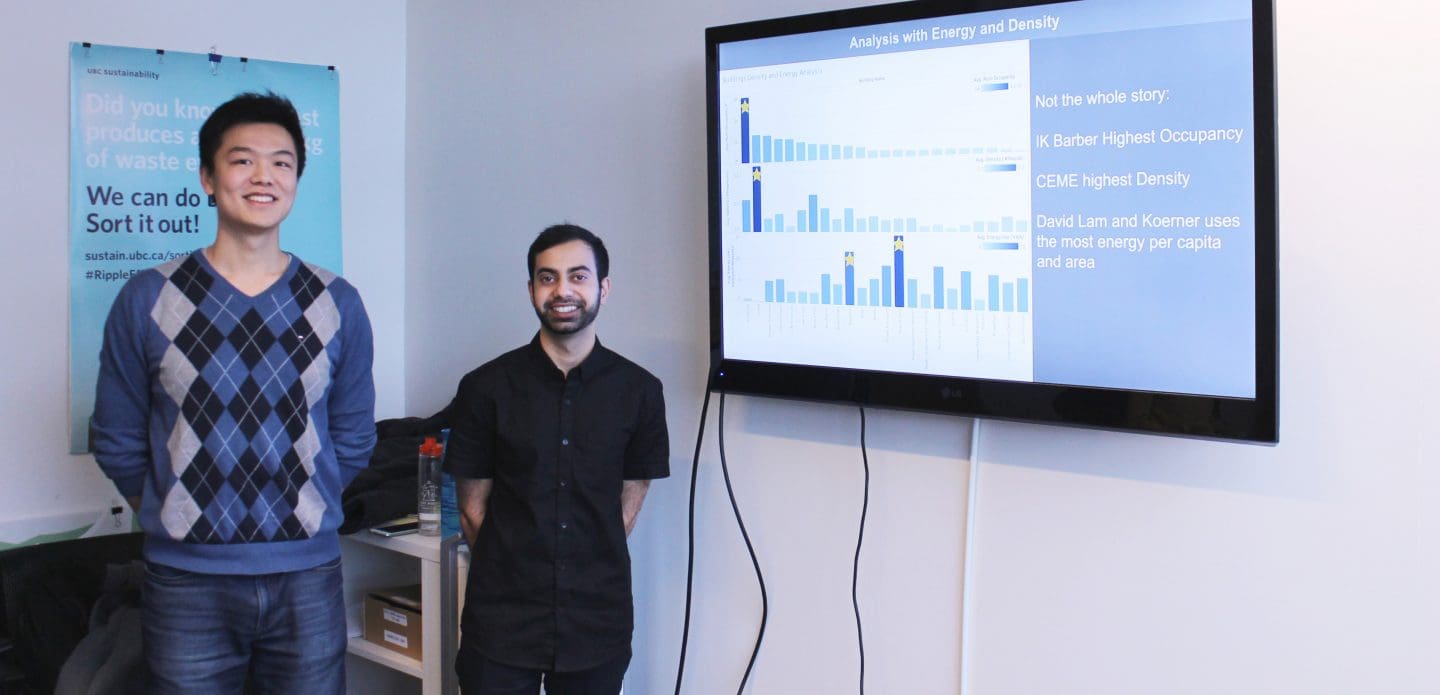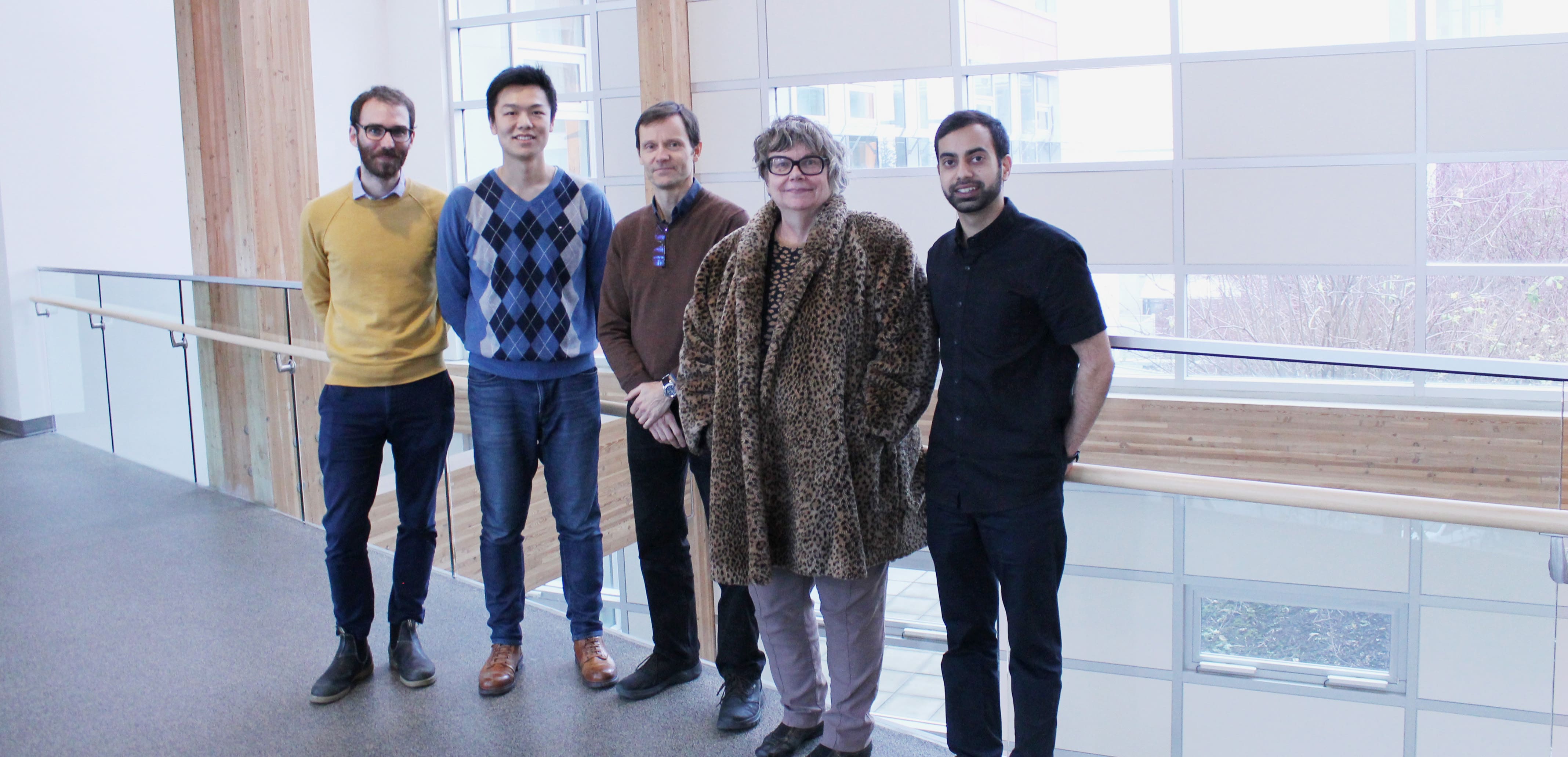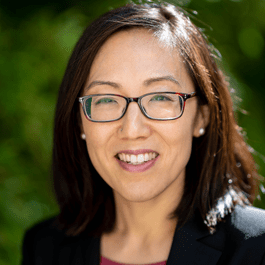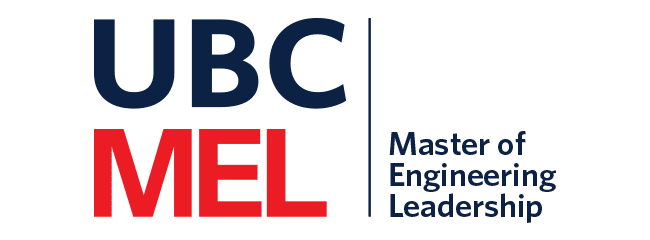UPAL — A research opportunity within MEL in Urban Systems program

Studying at UBC within the MEL degree provides students with opportunities to engage in research projects that will enhance their learning and skills.
For students in the MEL in Urban Systems program, the Urban Predictive Analytics Lab (UPAL) — based at UBC’s Vancouver campus — provides opportunities for research on urban data analytics to assess the interdependency between infrastructure, technology, people and the environment in urban settings.
Martino Tran, MEL in Urban Systems program co-director, is the Director of UPAL. He believes that providing students the opportunity to participate in applied research with city stakeholders is a great asset to their education and that the students who have already completed the program have received a number of benefits, including:
- gaining hands-on experience with industry partners
- enabling students to manage research projects
- building relationships with academic and industry stakeholders
- aid in seeking job opportunities after graduation
Students from the Urban Systems Program
Melissa Yong (MEL ’16) — who studied in the Urban Systems program and is now pursuing her Master of Applied Science in Civil Engineering — is a core member of the team researching at UPAL.
Since graduating from the Urban Systems program, UPAL has given Yong hands-on research experience and in conjunction with her studies, she is able to combine her research interests, which include sustainable infrastructure, construction cost estimating and feasibility studies during the front end of her projects.
Zeshan Nurani and Kevin Chen, MEL students who have just completed their studies in the Urban Systems program, have embarked on a project with UBC’s sustainability initiative. They utilized Wi-Fi data in UBC buildings to analyze building occupancies across campus over an entire year. By applying their new skills and visualization software, they were able to create innovative insights with UBC stakeholders from Infrastructure Development, Sustainability and Engineering, and Campus and Community Planning. Through this engagement, they have been able to develop interdisciplinary sustainability strategies that would benefit UBC at an institutional level. Once proven, these same strategies can be scaled up and applied to entire metropolitan regions.

Collaboration and Shared Expertise
According to Nurani, exposure to research through Tran and UPAL aided his own research pursuits. He states that, “the project is about using computer infrastructure and Wi-Fi technology to understand people and the building environment, it was a natural fit for myself to collaborate with UPAL for feedback and opportunities. UPAL is a collaborative atmosphere, the sharing and critical thinking of ideas is what makes it so powerful. To innovate in this sector, it takes expertise from every engineering discipline. I have the unique opportunity to be in the room with like-minded people from all over the world, spread across many disciplines, all doing work around urban development. The resources from the MEL program allowed me the flexibility to start a sustainability project, connected me with world class Masters/PhD students, and provided any support I needed to develop a project that could make a real world impact.”
The ability to connect and collaborate through the MEL program is a sentiment shared by Chen.
He explains that, “a common theme in the MEL Urban Systems program is inter-disciplinary collaboration. This approach enabled students to explore ideas beyond their own subject of expertise in a collaborative atmosphere. The findings of the building occupancy project produced data to support multiple departments on campus.” He emphasized further that, “this project embodied the values of UBC’s living lab strategy where students are free to explore, collaborate and share. In particular, MEL students can apply the knowledge learnt from their business classes and develop the business case to get buy-in from stakeholders.”
The ability to build these connections is something that Nurani attributes to the structure of the MEL program. He explains that the professors are leaders in their fields and have networks that span the globe.
MEL professors are an arm-length away and always willing to provide feedback and direction, or will help you find the person that can. These resources aid students in their efforts to initiate projects with incredible amounts of freedom.
Enabling students to connect with departments across campus, truly making their experience interdisciplinary.
What started as exposure to research through a professor in the MEL in Urban Systems degree, has transformed into an impactful student-led project that has united multiple departments over a single vision. Nurani and Chen hope the project evolves into an open-data initiative on campus.
They explain that, “access to data is a powerful way to support student and staff innovation. In particular, an open-data platform would organically develop interdisciplinary projects by breaking down the “barrier to collaboration;” not just between siloed departments, but also between students and staff. This type of “digital transformation” is currently underway in multiple industries and municipalities like London, Amsterdam, and Edmonton. We believe MEL students with experience in interdisciplinary collaboration, effective communication and digital transformation will create exceptional value for future employers or start-ups of their own.”
Visit UPAL to get more information about current projects and the team.
Urban Systems
Application Deadlines
The online application portal for the January 2025 has closed.
Get ready to apply!
Admissions for the 2026 intake will open on January 1, 2025.
How to ApplyAssess your Eligibility
Determine if your professional experience and academic background make you a fit for your desired program.
Start AssessmentJoin us for an
Info Session
Sign up for our latest online information sessions and discover what our programs have to offer.
Sign Up NowFeatured Faculty and Staff

Dr. Amy Kim
Featured Alumni

Grace Sonmezsoy
A management consultant with 20 years of experience, a degree in civil and environmental engineering, an MSc in Transport and an MBA, Grace Sonmezsoy pursued the MEL in Urban Systems to update her skills so she can better address the complex challenges facing our cities.


